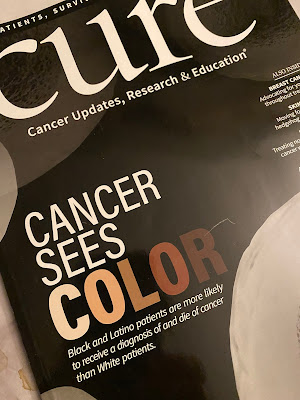White Feminism and BC
Today I am grateful for new writing endeavors on Instagram and for the ease of accessing clean drinking water. I take it for granted most days, but also try to be a good steward of this crucial resource.
As I continue to process the book Me and White Supremacy, I continue to see more that I cannot unsee. White feminism was one of the readings that hit me especially hard. It is defined in the book as: feminist theories that focus on the struggles of white women without addressing distinct forms of oppression faced by ethnic minority women and women lacking other privileges.
I have always considered myself a feminist, and became even a stronger one after my breast cancer experience. The pink ribbon culture and the objectifying of women and breasts didn't sit well with me then and it still doesn't now. I am particularly proud of this related writing for Nancy's Point blog titled The Sum of All My Parts.
As I read about white feminism, I was particularly struck by how I had only viewed my breast cancer experience and advocacy through the lens of a white woman with good insurance, access to medical care and treatments, and general trust in the health care I was being provided.
That is often not the experience for BIPOC, and it leads to worse outcomes for them when diagnosed with breast and other cancers. A few days ago, the latest issue of CURE Magazine arrived in the mail, with this cover story:


Comments
Post a Comment